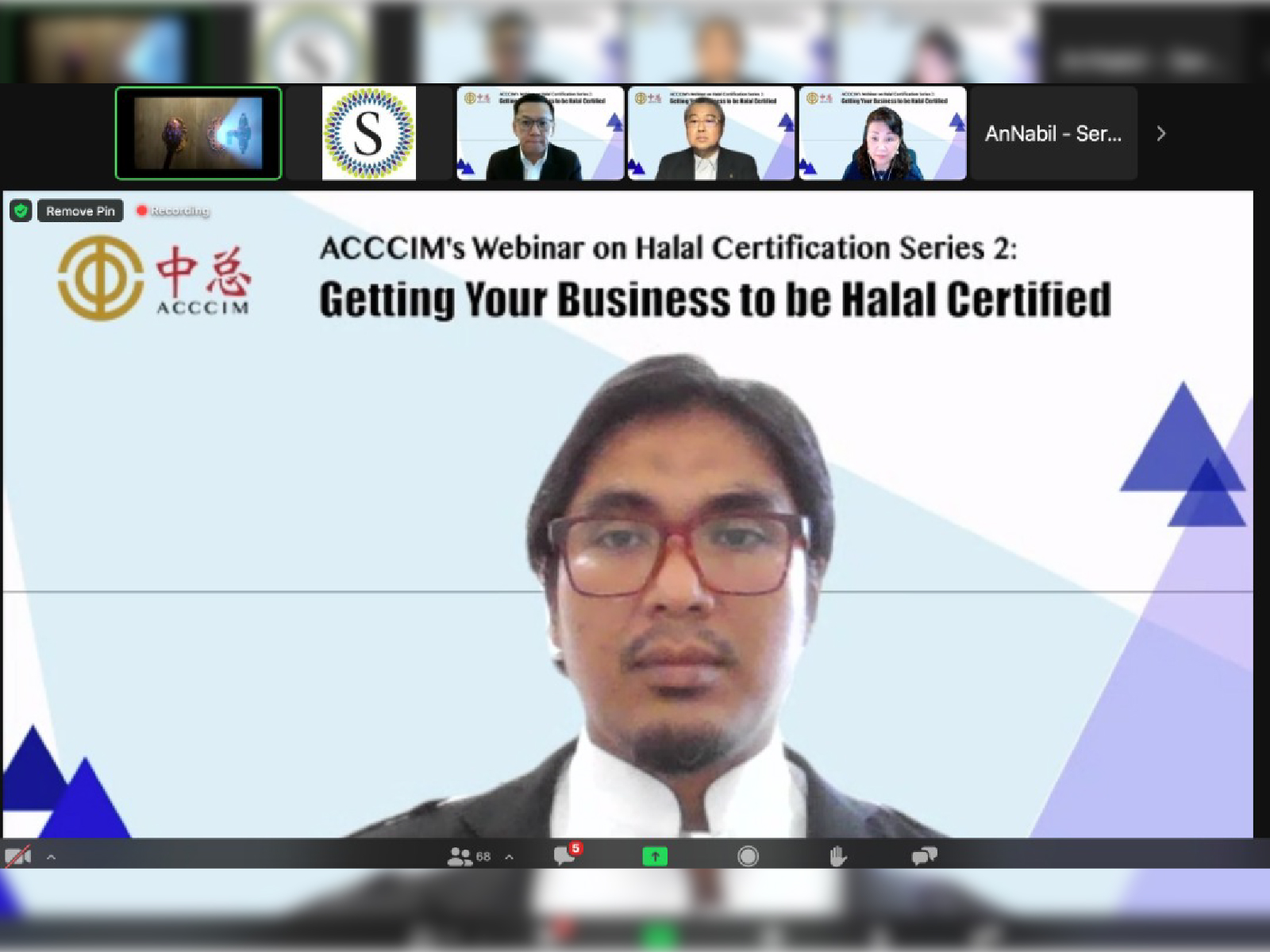THE Associated Chinese Chambers of Commerce and Industry of Malaysia (ACCCIM) organised a webinar “Halal Certification Series 2 — Getting Your Business to be Halal Certified” aims to provide further information on the importance of halal certification to tap into the lucrative halal market.
ACCCIM secretary general Datuk Tan Tian Meng said the implementation of the Regional Comprehensive Economic Partnership previously aims to ease trade barriers among the participating countries, businesses are encouraged to obtain halal certification to expand their export markets while at the same time, creating domino effects to attract high-quality investments from foreign and domestic companies into Malaysia aligning with the government’s initiative to “go global” with the halal certification.
“The reopening of borders on April 1 will see the local tourism industry bouncing back to its periodic peak. Food being a form of tourist attraction does play an important role — the accessibility to a variety of halal cuisine will be a great draw for Muslim tourists to Malaysia, thus making their visit more welcoming and culminating in a positive experience,” he said during the webinar yesterday.
According to the Halal Industry Master Plan 2030 (HIMP 2030), the global halal market is expected to reach US$5 trillion (RM21 trillion) by 2030, with domestic growth reaching US$113.2 billion. With a comprehensive halal ecosystem, Malaysia is endowed with a competitive advantage to fully capitalise this timely opportunity.
The HIMP 2030 focuses on strengthening and internationalising the halal ecosystem in Malaysia by re-evaluating and improving existing initiatives, as well as introducing high impact initiatives in line with the government’s direction.
Moreover, the report also explained more on the importance of halal industry stating that Malaysia was the pioneer of the halal industry with more than 40 years of experience in the development of the halal industry.
Malaysia is still a net importer of various products including halal products resulting in the increasing domestic demand of halal industry with a huge global halal market potential — 80% estimated gap between the demand and the production of global halal products.
During the webinar, the Department of Islamic Development Malaysia’s halal professional board representative Mohd Jabal Abd Rahim asserts several things that need to be emphasised, among them are eligibility to apply, 17 requirements of halal certification, stages of application and reason why application is rejected.
He also said that having the right halal recognition allows product to penetrate globally and increase profitability, hence halal certification from credible halal certification bodies provides assurance on product integrity and attract trust from consumers especially from Muslim consumers.
“Halal is universal and suitable for everyone because it focuses on suitability of food consumable by humans. Halal certification is not only demanded by Muslim countries but also non-Muslim countries like the US, France, Japan and Korea due to its high-quality products produced with halal certified,” he said.
Prior to this, Deputy International Trade and Industry Ministry (MITI) Minister Datuk Lim Ban Hong said the government has allocated RM12.63 million for 2022 to further strengthen the national halal industry’s development which includes the projects under MITI’s supervision worth RM3.9 million (management and development), the Ministry of Entrepreneur and Cooperative Development worth RM5.1 million (four development projects) and the Prime Minister’s Department worth RM3.63 million (three development projects).
“These measures and efforts are expected to increase the halal industry’s GDP contribution to 8.1% and generate exports revenue of RM56 billion by 2025 compared to 6.6% and RM30.5 billion respectively in 2020,” he said.







Like (0)